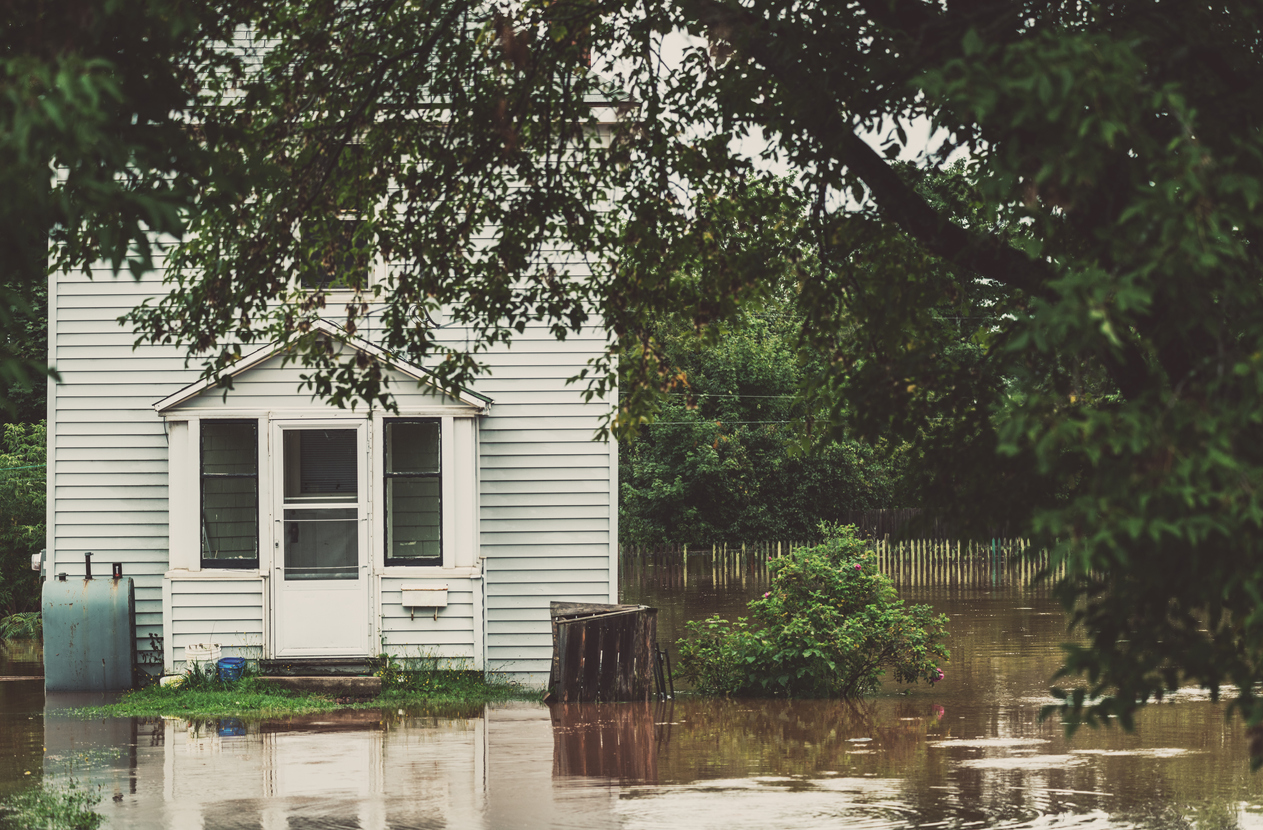We may earn revenue from the products available on this page and participate in affiliate programs. Learn More ›
You’re ready to tackle your next home improvement project, and all you need is a contractor to take on the job. While it may be convenient to use the contractor who left a flyer at your door, homeowners should use caution when choosing a contractor to avoid getting caught in a scam.
Home improvement scams are on the rise—in 2021, the median loss from home improvement scams was $1,700. Scams also tend to increase following a weather event or during the warmer months. Before you sign any contracts or checks, keep these 10 common cons in mind to avoid becoming a victim of a home improvement scam.
RELATED: Solved! Who Do You Hire to Remodel a House? 4 Pros to Consider
1. Deposit Scam

In this situation, the contractor will ask for payment upfront (usually cash) before beginning work. Then, the contractor disappears and never completes the project. Many legitimate contractors may ask for a 10 percent to 30 percent deposit at the start of a project, but never the full amount. Some states even limit the amount of money a contractor can ask for as a down payment.
Asking for cash can be another red flag of a scam. Be extra careful depositing cash, since it is less protected than a credit card or check payment.
RELATED: I Hired ServPro to Repair Water Damage After a Flood—Did It Sink or Swim?
2. Insurance Scam

This trick is common after a big storm or natural disaster that damages homes in the area. Scammers will visit homes affected by the weather and offer their services to fix the damage. The scammers say they will handle the insurance claim and payment for the homeowner, which is a common situation for legitimate contractors.
Then, the scammers pocket the insurance money to repair the damages and are never heard from again. Ask contractors for referrals and their credentials to verify their business and avoid getting scammed.
RELATED: 11 Ticking Time Bombs in Your House—and What to Do About Them
3. Fake Company

This scam begins with an unexpected phone call or a visit to your home. The “contractor” may offer a special deal that is available today only and pressure you to commit to a deposit. Later, the contractor is nowhere to be found and you can’t find the company’s name or contact information anywhere. Always ask a contractor for their credential information, such as a city permit, to ensure you’re dealing with a real business.
4. Handshake Deals

Watch out for contractors who offer a quote and ask you to agree to the price without any sort of contract or documentation. Often, this leads to contractors increasing the total price at the end of the job. Get the quote in writing and a contract signed before exchanging any money.
RELATED: 11 Things Your Contractor Won’t Tell You for Free
5. Lowball Quote

Homeowners looking for help with a home project shouldn’t get too excited when a contractor quotes a price lower than others. Contractors who offer super-low quotes are either inexperienced or scammers trying to lure in victims.
Either way, the quote might increase as the contractor begins work. Ask your contractor the reason for the lower estimate, and include a contract clause that requires a change order agreed upon by both parties if additional work or costs come up during the project.
RELATED: I Used HomeAdvisor to Find a Contractor and Got More Than I Bargained For
6. Door-to-Door Contractors

A common home improvement scam is when a contractor knocks on your door claiming to have leftover supplies from another project and offers their services for a low price. If the cost—or the project time frame—seems too good to be true, it probably is. In this situation, the contractor might steal deposit money, leave the project half-finished, or claim there are issues that raise the price. Not all contractors who go door-to-door are scammers, but be cautious of anyone who asks for your business.
RELATED: Risky Business: Angi’s Biggest Problem Is Itself—But Is It Worth Trying?
7. Home Improvement Loan Scam

Some fraudsters will scam homeowners by taking out a loan against their home. A contractor will offer homeowners a deal on a large home improvement project, such as a new roof, and recommend financing with a lender they know. When the homeowners sign the papers, there might be blank spots or sections they didn’t read thoroughly. Then, the homeowners find out a line of equity has been taken out on their home and the contractor is nowhere to be found.
Homeowners should always shop around for other loan options and never agree to a loan without fully understanding its terms. Do not sign a contract with blank sections and don’t let anyone pressure you to sign a document without carefully reading it first.
8. The “Free” Inspection

Be wary of contractors who show up on your doorstep offering a free home inspection. In this situation, the contractor may inspect your home only to cause damage during the inspection so they will be hired to fix the damage. They also might use industry terms you’re unfamiliar with to scare you into moving ahead.
9. Flyer Advertisements

Flyer advertisements do not guarantee a scam, but it’s essential to do your research before calling the number on a flyer. A quick internet search on the business can help you find reviews and other information to verify the contractor is legitimate and hasn’t scammed others in past projects.
10. Homeowner Pulling Permits

It’s not a good sign if a contractor asks a homeowner to pull permits for a project. An ethical contractor will not ask you to pull any permits, and this often means the contractor does not have a license. They may say you can save money by pulling the permits yourself, but this is usually not true. A good contractor will know the different permit requirements and regulations in the area so homeowners don’t overpay or get charged with permit extensions.


